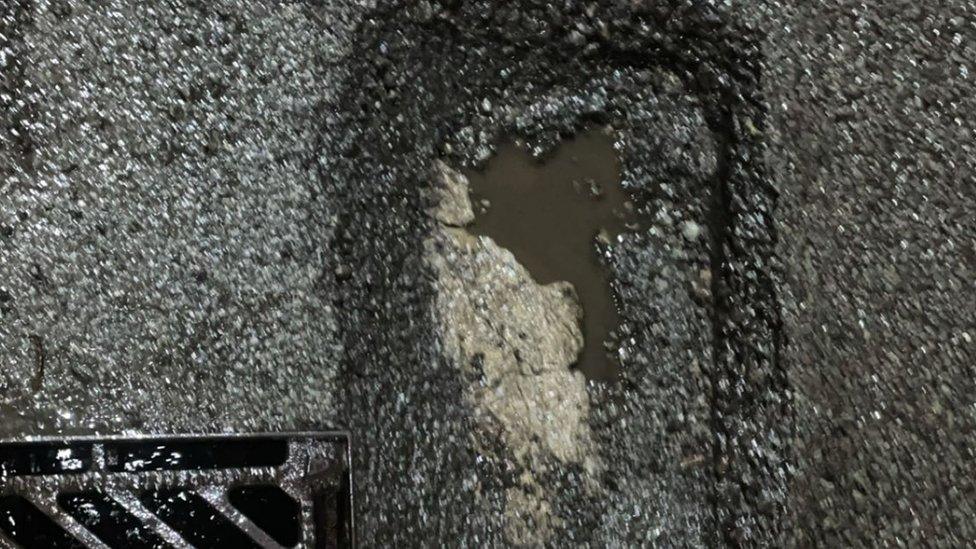Surface dressing roadworks in Derbyshire: Your questions answered
- Published
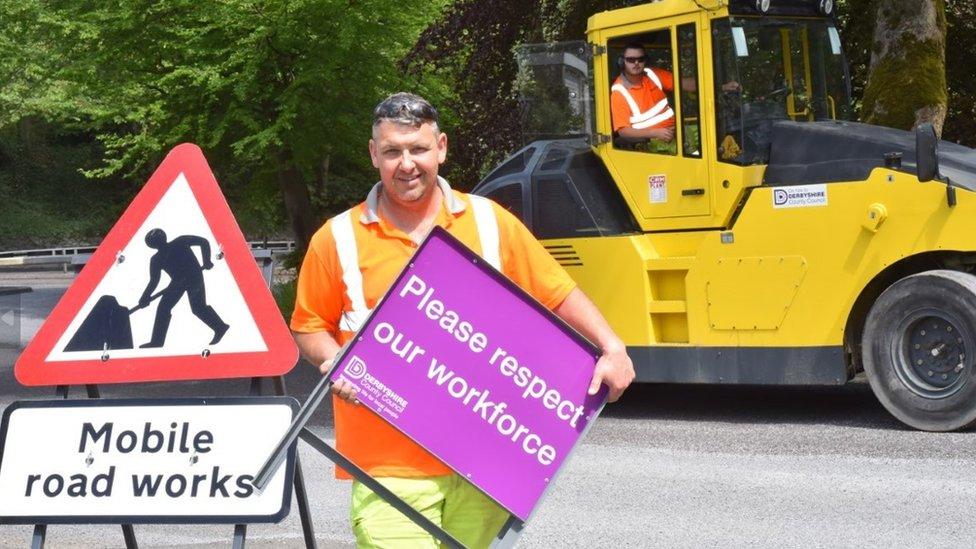
Work to seal and cover 81 sites with chippings in Derbyshire is under way
If you have been driving around Derbyshire this week, you may have noticed chippings on some roads after work to "surface dress" them began.
Derbyshire County Council started work on Tuesday to seal 81 sites across the county with a layer of bitumen - which acts as glue - and then roll chippings on top.
Between now and the end of June, 465,000 sq m of roads - equivalent to 65 football grounds - will be "surface dressed" as part of a £4.2m project.
The council's announcement of this work on social media has caused a stir with one commenter branding it a "huge waste of time, money and resources" and another asking for the council to "repair the roads properly and stop throwing gravel at them".
This week Charlotte Cupit, cabinet member for highways and transport, answered questions about the work from members of the public on BBC Radio Derby.
What is surface dressing and how long does it take?
"It is to prolong the life of roads. It is completely different to resurfacing. We spray bitumen - that seals it," she said.
"The key thing is to seal the road and prevent water, which is the key thing that causes potholes, and then chip it over, which is what gives you your skid resistance."
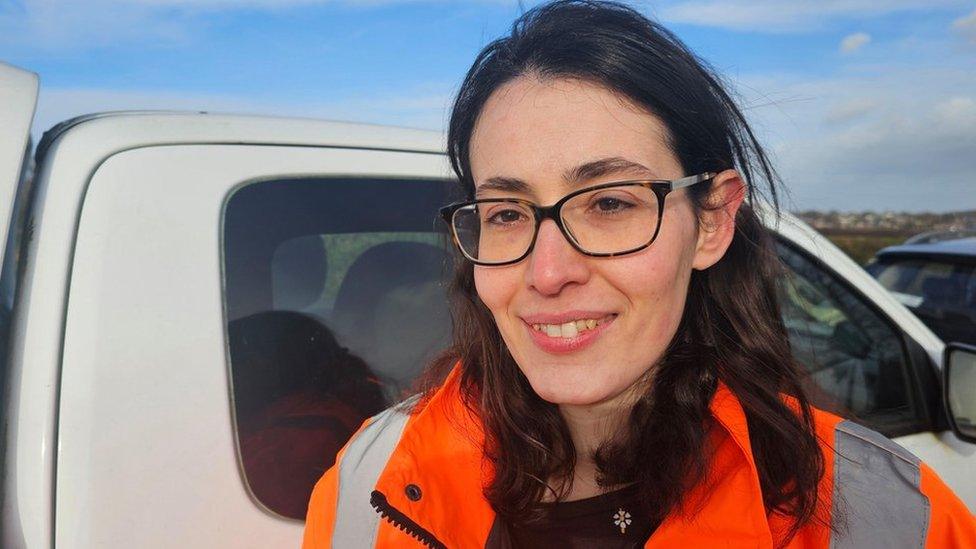
Councillor Charlotte Cupit said the work was important
Does it damage paint work and windscreens, and clog drains?
"It doesn't clog the drains, they all have catchments," she said.
"We do two things. We tape them up on the day. Then all the drains have a catch pot so it does not go in and block the drain."
She said if any chippings did go in, workers emptied the pots when they came back.
On the point about vehicles' paintwork, she added: "I totally understand the frustrations and share them about chippings. We all drive on the roads after surface dressing.
"We need vehicles to drive over it in order to bed the chippings in. That's why we put warning signage up for vehicles to drive a little bit slower, just for a couple of days, while it is bedded in and then we sweep it off."
Is it a halfway measure for properly dealing with poor road surfaces?
The councillor said: "It is completely different. It is a different technique. It is to prolong the life.
"It is that proactive, preventative measure that I know a lot of people rightly want us to do. Then we have a big resurfacing programme as well."
She added the 81 sites had already had patches resurfaced that needed it - "then the surface dressing on top is to seal that all in".
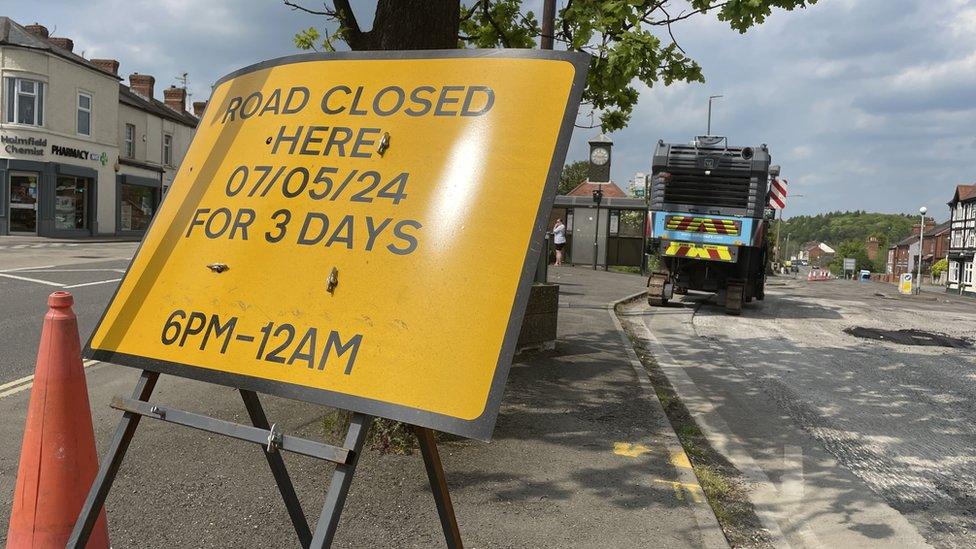
Alfreton Road in Codnor was recently closed for resurfacing work
Is there enough money?
Ms Cupit said: "I have written to government regularly to highlight the challenges nationally but specifically in Derbyshire - that's what's most important to me and our residents."
She added she had also written to the new East Midlands mayor Claire Ward asking for an urgent meeting.
"The new East Midlands Mayor has a £1.5bn settlement - obviously it will be for a wide range of things - but I would hope for a large chunk of that to come to us on our roads," she said.
"I don't want the mayor to fix the potholes - I want money to resurface the roads."
Ms Cupit added this would be a "quick win for all our communities".
She added that "many millions - probably towards a billion" would be needed to make all Derbyshire roads smooth.
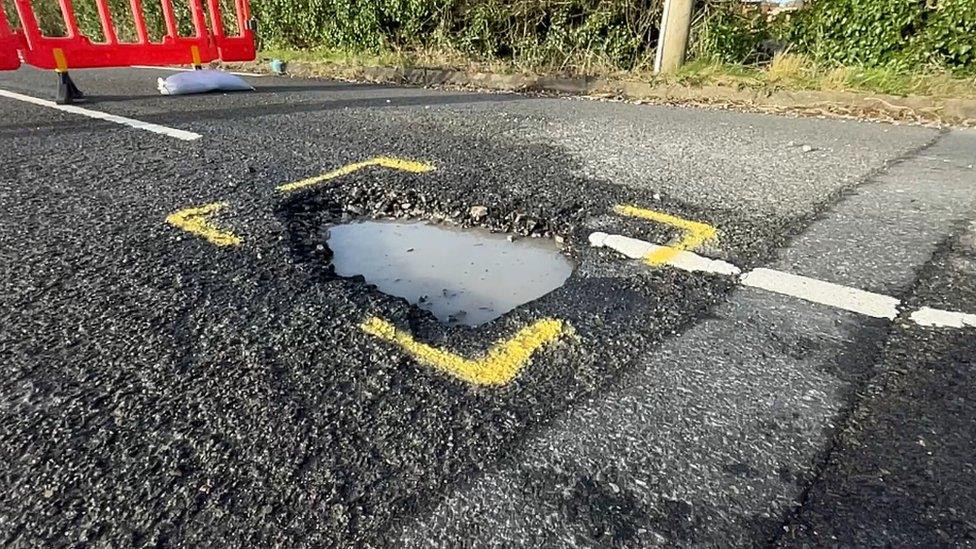
Derbyshire County Council said its teams were filling 2,000 potholes a week
The road closures around the Hope Valley are making it impossible for people to travel anywhere. Are too many repairs taking place in the same place at the same time?
Ms Cupit said: "We plan and co-ordinate. I was in Hope recently - everything was co-ordinated with advance signage. I apologise for the disruption. I'm sorry it causes delays.
"I know particularly in the more rural parts of the county you have a long diversion but everybody wants the roads to be improved so that does involve disruption."
I have reported my road three times since January - why has nothing been done?
Ms Cupit said: "We are filling 2,000 potholes a week. We have got bumper teams on because we are trying to do longer-lasting, bigger repairs.
"We'll get there as soon as we can but I get that the pothole near you is the one that matters most to you."
The councillor said the council had a 3,500-mile network and were doing everything they could "because we know how important it is to residents".

Follow BBC Derby on Facebook, external, on X, external, or on Instagram, external. Send your story ideas to eastmidsnews@bbc.co.uk, external or via WhatsApp, external on 0808 100 2210.
Related topics
- Published16 May 2024
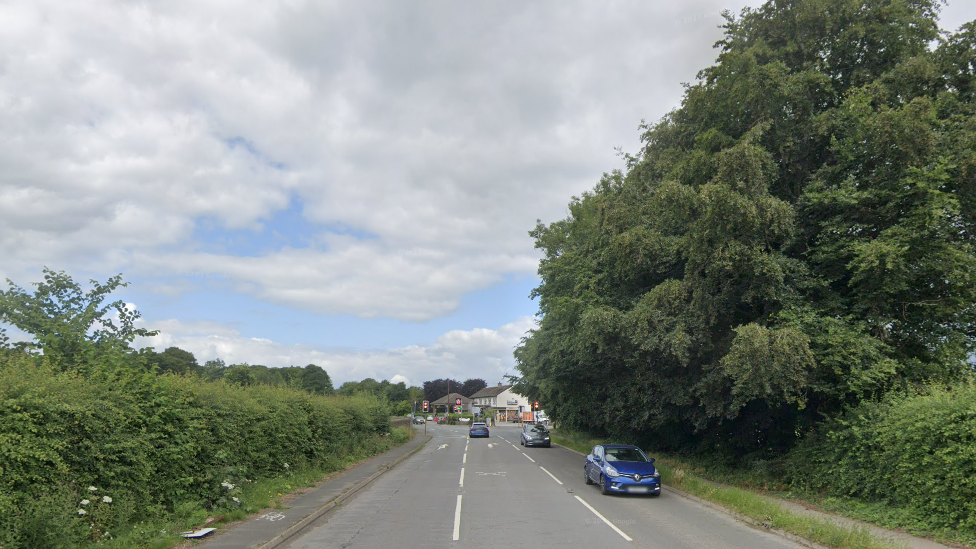
- Published1 February 2024
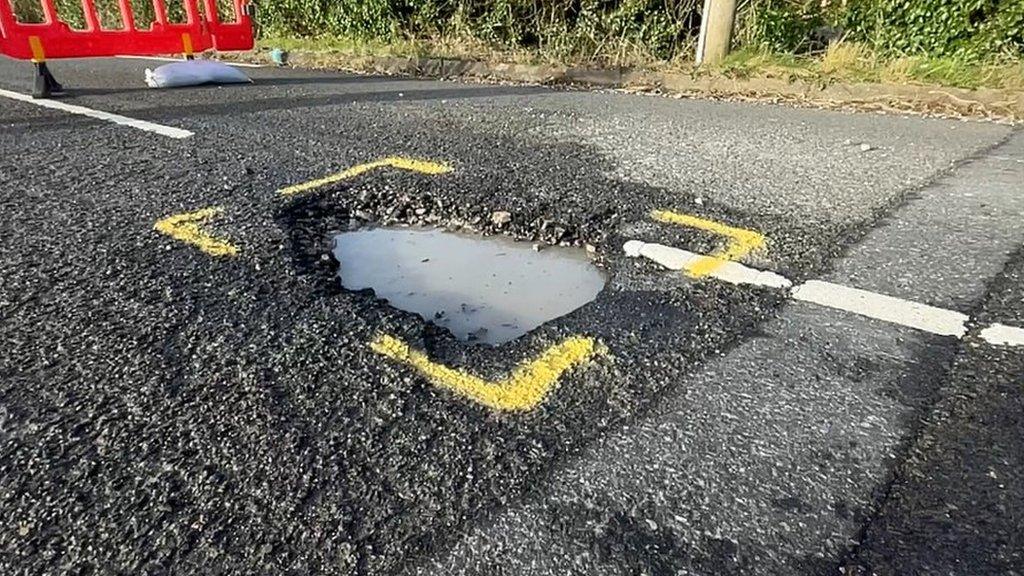
- Published17 January 2024
